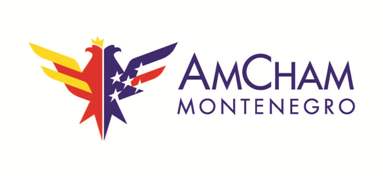
5
2021AmCham blog: THE EUROPE’S DIGITAL FUTURE
“A European approach to digital transformation means empowering and including every citizen, strengthening the potential of every business and meeting global challenges with our core values.”
The EU’s Digital Strategy
Author: Radmila Djuric, member of the AmCham Digital Transformation Committee
Shaping Europe’s Digital Future is the five-year roadmap of the European Commission’s new strategy and a mission to make Europe fit for the digital age. As part of that roadmap, in December 2020, the European Commission adopted two new regulations, as a set of new rules governing the digital market and service in the European Union: The Digital Markets Act and the Digital Services Act.
The new rules will change the legal framework and create a safer digital space in which internet companies will operate. These Acts encourage more competition in digital market and greater transparency in the operation of online platforms, in which the fundamental rights of all users of digital services are protected. Moreover, the proposals of the European Commission may greatly affect large companies with significant market power, operating as online platforms in the territory of the European Union.
Within the European Digital Strategy, the European approach will be focused on three key objectives, in order to promote and contribute to digital transformation that works for the benefit of people, a more competitive digital market and Europe as a global digital player:
- Technology that works for people includes development, deployment and uptake of technology that makes a real difference to people’s daily lives.
- A fair and competitive economy i.e. a single market, where companies of all sizes and in any sector can compete and develop on equal terms. And consumers can be confident that their rights are respected.
- An open, democratic and sustainable society; a trustworthy environment in which citizens are empowered in how they act and interact and carefree about the data they provide both online and offline.
Digital Markets Act (DMA)
This Act aims to introduce more competition in online business, open digital markets, a fairer business environments and new opportunities for competition.
Through this Act, the European Commission has identified the importance of large digital service providers in the process of digitalization and this Act establishes criteria for qualifying large online platforms, as a so-called “gatekeepers”:
- strong economic position, significant impact on the internal market and activity in multiple EU countries;
- strong intermediation position, meaning that it links a large user base to a large number of businesses;
- has (or is about to have) an entrenched and durable position in the market, meaning that it is stable over time.
So, according to the DMA, gatekeepers will have to:
- allow third parties to inter – operate with the gatekeeper’s own services in certain specific situations;
- allow their business users to access the data that they generate in their use of the gatekeeper’s platform;
- provide companies advertising on their platform, with the tools and information necessary for advertisers and publishers, to carry out their own independent verification of their advertisements;
- allow their business users to promote their offer and conclude contracts with their customers, outside the gatekeeper’s platform.
Gatekeepers platforms may no longer be allowed to treat services and products offered by the gatekeeper itself more favorably in ranking than similar services or products offered by third parties on the gatekeeper’s platform. Also, these companies will no longer be allowed to prevent consumers from linking up to businesses outside their platforms and to prevent users from un-installing any pre-installed software or app.
Companies that do not comply with the new obligations, risk fines of up to 10 percent of their annual turnover worldwide and periodic penalty payments of up to 5 percent of the average daily turnover.
 The Digital Services Act (DSA)
The Digital Services Act (DSA)
The Digital Services Act will introduce a series of new, harmonized EU-wide obligations for digital services, in order to ensure better protection of consumers fundamental rights, cooperation process among public authorities and to establish a powerful transparency framework for online platforms.
With DSA, the European Commission primarily targets those companies that provide key internet services – online intermediary services, hosting services, online platforms and very large online platforms. The obligations of different platforms depend on their role, size and impact in the digital market, so the specific rules are foreseen for platforms reaching more than 10 percent of 450 million consumers in Europe – gatekeepers.
An online platform, a hosting service which stores information and disseminates it to the public, among others, will have the following obligations:
- setting up a complaint and redress mechanism and out of court dispute settlement;
- establishing measures against abusive notices and counter-notices;
- user-facing transparency of online advertising;
- reporting criminal offences.
Very large online platforms, acting as gatekeepers, among other obligations, will have to:
- conduct yearly independent audit of the risk management;
- establish a simple mechanism for reporting of illegal content;
- appoint one or more compliance officers responsible for monitoring compliance with the DSA;
- set up a transparency of recommender systems and user choice for access to information;
- data sharing with authorities and researchers.
For online platforms it is proposed to cooperate with certified organizations- trusted flaggers and to act urgently on content removal reports, submitted by trusted flaggers. Online platforms will be obliged to remove illegal content at the request of a national court or administrative body, and to provide the requested information on a particular service user, in accordance with EU law.
In the most serious cases for very large platforms, the Commission can impose fines of up to 6 percent of the global turnover of a service provider.
After the publication of the DMA and DSA proposals, the European Parliament and the Member States will discuss the proposals in the ordinary legislative procedure. Once adopted, the new rules will be directly applicable across the EU.
However, considering all the changes that will be introduced, mass lobbying for these laws was inevitable.
So far, Google has obtained the most meetings relating to these proposals, followed by Microsoft and Facebook. Apple and Amazon have also lobbied on the DMA and DSA.
Once the Commission’s proposals are presented, it will be up to the European Parliament and Council to start discussing them and to make their own amendments. It seems that we will have opportunity to watch how the process of corporate lobbying for the content of these Acts will take place and what changes the European Parliament and Council will begin to discuss and finally adopt.
Although these regulations should apply to the EU countries, it can be expected that other non-EU countries, as Montenegro, will soon be affected as well. This impact can be reflected through the adoption of new local legislation, practices, changes in several different industries and whole society.
Sources and more information:
ec.europa.eu
politico.eu
corporateeurope.org
Photo source:








